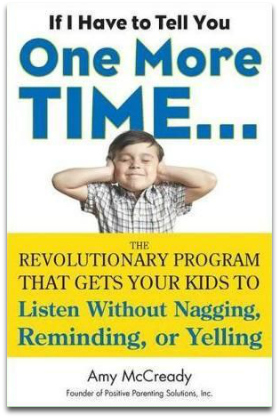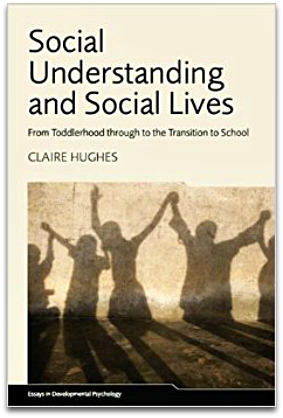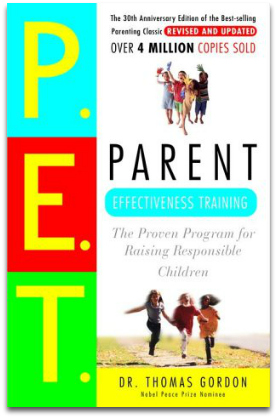 How do they do it?
How do they do it?
How do siblings go from playing perfectly to fighting furiously, in a matter of seconds?
Not only is the shift quick and pronounced, but kids seem to have a built-in timer. They know the exact moment you sit down for a quiet cuppa — that moment when you relax, and it seems so hard to get out of your chair.
And you wonder why the peace was shattered, and how the change happened so suddenly.
And then you remember: nobody can fight like family.
It’s sibling rivalry, it drives parents nuts, and it’s inevitable if you’ve got more than one child in your home.
So how do you handle it, without losing your cool and making the situation a whole lot worse?
There are probably loads of ways, but here are some tactics well suited for those of us striving to be positive parents that I’ve tried and can vouch for:
#1 Insist on a hands-off policy
Sibling rivalry can manifest itself in many forms. Mayo Clinic says that sibling rivalry can include hitting, name-calling, bickering and immature behavior.
When kids get frustrated enough, they’ll lash out physically, and it’s not pretty. It happens less frequently as they get older and as they develop better ways of expressing themselves, but they still slip from time to time.
Parenting expert Michael Grose recommends having a family hands-off policy to solve this problem. He agrees that having a hands-off policy doesn’t mean kids will stick to it, but that parents should make it clear that hitting and hurting are not appropriate ways to solve problems.
The hands-off policy gives parents something to refer to when kids respond physically to conflict. Grose suggests saying something like, “We have a hands-off policy in our family. You overstepped the mark when you whacked your brother. We cool down and talk things through here. How will you fix this situation?”
The hands-off policy is a gentle reminder to your children that they are not expressing themselves appropriately and need to consider others, even when they don’t agree with them.
#2 Refuse to put a child in charge
 According to Michael Grose, author of Why First Borns Rule the World and Last Borns Want to Change It
According to Michael Grose, author of Why First Borns Rule the World and Last Borns Want to Change It, sibling rivalry is a natural consequence of birth order.
It certainly explains much of my childhood.
As the eldest, I was the responsible, determined, neurotic perfectionist. As the youngest, my brother was the persistent risk-taker who constantly challenged authority.
We behaved true to form and fought like a couple of demons. My poor sister was jammed in the middle, destined to be the mediator.
Now I’m a parent and I have two girls. Generally, they get on well, but it’s interesting to me how they demonstrate their birth order personalities.
My first born desperately wants to revisit that brief time when her sister was about three. Why? Because she was old enough to play with, and follow directions, but too young to challenge authority.
My older daughter often asks, “Can I be in charge?”
Instead of having history repeat itself, and encouraging the natural consequences of birth order, I say, “No”.
In my mind, this would be like laying an explosive charge and giving them matches to play with. Putting one child in charge of the other doesn’t work until they have the skills and knowledge to exert their authority fairly.
Instead, I tell them, “You are both in charge of yourselves. You both know what’s right, and what’s wrong, and I trust you both to do the right thing.”
This encourages my younger daughter to take responsibility, and my older child to accept the imperfections of others. As my eldest is only responsible for herself, she doesn’t need to report anyone’s failure to adhere to rules!
Disrupting the natural birth order personalities encourages your kids to take responsibility for themselves.
#3 Discover the power of one-on-one time
 Sibling rivalry is a power struggle, according to Amy McCready, parenting expert and author of If I Have to Tell You One More Time…
Sibling rivalry is a power struggle, according to Amy McCready, parenting expert and author of If I Have to Tell You One More Time… She says that all people, including children, have a basic need to feel powerful.
McCready believes that if we don’t meet the need in a positive way, kids resort to negative behavior.
McCready says that sibling rivalry stems from this unmet need for power and attention. She also believes that parents often unknowingly exacerbate the problem by labeling behavior and taking sides.
McCready says we should give our kids a little of the power and attention they crave, every day. She says we should spend some one-on-one time with each of our kids, every day.
I started doing this quite by accident, and found it works a treat.
My eldest daughter needed help to improve her reading. Her school recommended a program for me, and part of the program required us to spend ten minutes reading every day.
After a few days I not only noticed an improvement in her reading, but more importantly, in her behavior and in our relationship.
We became closer and, as our relationship strengthened, so did her desire to please. She started listening more, and battling less. Not just with me, but with her sister too.
Your kids don’t need to win so many arguments when they’re winning time with you each day.
#4 Listen between the lines
 Dr. Claire Hughes, author of Social Understanding and Social Lives: From Toddlerhood through to the Transition to School
Dr. Claire Hughes, author of Social Understanding and Social Lives: From Toddlerhood through to the Transition to School, says that sibling rivalry can increase maturity, enhance social skills and improve emotional development.
Hughes argues that sibling rivalry in moderation can be good for children as long as it does not get out of hands. Based on her research, she says that “…the more they argue and the older child puts the younger one down, the more they are learning complex lessons about communication and the subtleties of language.”
She claims it also helps children learn to regulate their emotions.
While this may be true, regular arguments don’t make for a happy family environment (or sane parents), and there are days when you just don’t want to deal with it.
I’ve found that some arguments can be thwarted by listening in to your children’s conversation and stopping arguments before they start.
My mother-in-law was apparently great at it (unfortunately I never met her). My husband tells me that she was an expert at listening between the lines. She could hear the seeds of disagreement as they began to germinate and nip them before they sprouted.
Even before a row could erupt, she’d say something like, “Right, it’s time you boys went outside. I need to vacuum this room.” If they were outside, she’d come up with something like, “OK, I need some help inside. Let’s go.”
My husband recalls the frustration of never finishing a game because his mother always moved him on before anyone crossed the finish line. As the older of the two boys, he was doubtless about to win either the game, or the ensuing argument!
Clearly this isn’t something to use all the time, but it’s a useful tool to use when you’re just not up for any arguments.
#5 Veto winners and losers
 Usually when there are arguments, even between adults, there are winners and losers. It happens everywhere – at work, at home, and in the media. When the issue is resolved, one party is happy, and one is not.
Usually when there are arguments, even between adults, there are winners and losers. It happens everywhere – at work, at home, and in the media. When the issue is resolved, one party is happy, and one is not.
When your kids are arguing and they appeal to you, they want you to take sides — each one hoping to be the happy winner.
The way to circumvent this is to use the “No-Lose” method from Dr. Thomas Gordon, author of Parent Effectiveness Training: The Proven Program for Raising Responsible Children (PET).
This method supports children to express themselves with courtesy, and to negotiate effectively but fairly.
It also allows parents to intervene in disagreements, without taking sides — something that Dorothy Rowe, psychologist and author of My Dearest Enemy, My Dangerous Friend: Making and Breaking Sibling Bonds also recommends.
So how does it work?
Well, as Amy McCready says, you play the role of mediator, not referee. You help your kids to negotiate a solution that they can both live with.
The best way to really grasp this is to give you an example:
Grace: “No! I’m playing with the doll; you can’t just take it from me. Give it back!”
Jane: “But you put it down. You weren’t using it and I want to play with it!”
Grace: “I only put it down to get her dress. I hadn’t finished. I want to put her dress on.”
Parent: “So Jane, you started playing with the doll because you thought Grace had finished, but she hadn’t. And now you both want the doll. What do you girls think we should do? How can we fix this?”
Grace: “I had it first, so I should play with it!”
Parent: “Jane, Grace is saying she should play with the doll. What do you think of her solution?”
Jane: “But she put it down. It’s my turn now!”
Parent: “Grace, Jane is suggesting that it’s her turn with the doll. What do you think of that solution?”
Grace: “No! I want to put her dress on! I’m nearly done. She can play after.”
Parent: “Jane, Grace would like to finish her game before you have a turn. How does that sound?”
Jane: “OK. I’ll finish what I was playing and wait till she’s finished.”
Parent: “Thank you, Jane. You girls did a good job of negotiating a solution!”
Basically you, as the parent, are rephrasing what the kids say. You’re interpreting their comments as solutions. This technique takes a bit of getting used to, but it’s worth trying, and with practice, it gets easier.
The key is to keep the kids focused on finding a solution and remember not to expect miracles – from yourself or your children.
This is what I call a ‘big picture’ strategy because you’re teaching your kids skills they can use for life.
#6 Refuse to be involved
As mentioned earlier, Dr. Claire Hughes says sibling rivalry creates healthy conflict, and parents should be less inclined to intervene. Dr. Gordon suggests that the key to doing this is knowing when it’s our problem, and when it’s not.
If two of your children are arguing over a toy, it’s not your problem – it’s theirs. While their disagreement may impact you, the dispute is between the two of them.
If one of your children comes to you pleading their case, Gordon recommends parents say, “Sounds like you’ve got a problem.”
This lets your child know that you’re not getting involved, and they have the responsibility of sorting it out.
The first time I used the line, “Sounds like you’ve got a problem” it worked like a charm. My daughter looked a little stunned and wandered off to sort things out with her sister.
There was no “She said …”, and then “But she said …” It made life very easy!
It is a simple, easy solution that you can try right away.
Do What Works For Your Family
 At the end of the day, how you deal with sibling rivalry will depend on what you think works best for you and your family. But if what you’re doing now isn’t working for you, maybe it’s time to try something new?
At the end of the day, how you deal with sibling rivalry will depend on what you think works best for you and your family. But if what you’re doing now isn’t working for you, maybe it’s time to try something new?
As parents, our role is to make ourselves redundant. To encourage our kids to be as resilient, resourceful and self-reliant as possible.
You owe it to your kids to encourage their independence, so why not start by ditching the role of referee?
You owe them the opportunity to sort out their arguments themselves, whenever they can.
You owe them the responsibility of handling their own emotions, and the right to manage their own outcomes.
So, next time you hear a little conflict, sit back and relax – with these strategies under your belt, you’ve got this covered.
The 2-Minute Action Plan for Fine Parents
Reflect on the sibling rivalry that happens in your house. How does it play out? Are there usually winners and losers?
Consider letting your kids sort out their disagreements themselves. How do you see this playing out? Would it turn physical?
How can you fine-tune these techniques so they’ll work for you?
The Ongoing Action Plan for Fine Parents
Implement a hands-offs policy at home and start tuning in to your kids to try and prevent some of their disagreements.
Start spending one-on-one time with each of your children every day. Even two minutes can make a world of difference.
Practice saying “It sounds like you’ve got a problem” – it’s incredibly liberating!
Does anyone have some strategies for my 8yo? We use many of the above, but my 8 yo needs a choice of strategies to deal with the younger sibling, when I am leaving them to sort it out. The 6yo likes to irritate the elder one just to get a reaction, which results in the 8yo yelling to be left alone. These two children share a room and so alone time is difficult when you dont “own” a personal place to retreat to, and being turfed into communal areas is like a punishment. The 8 yo is frustrated, and after trying unsuccessfully with a nicely worded request ends up resorting to yelling as the default strategy.
Ra
What about when one sibling is too young to understand these techniques? I have two daughters, 3 1/2 and almost 2. They will mostly play very well together, but when the younger one (who is very mischievous) doesn’t do what the older one wants tears and tantrums often follow. Or if the older one takes something off the younger, she will scream and yank chunks of hair from her big sister.
I can reason to some extent with the older one, but the younger one just thinks it’s funny to annoy or hurt her sister. Suggestions please.
Hi Cathy,
Yes, toddlers are fun, aren’t they? Particularly little ones around 2 years old – they’re so egocentric. I love the Murphy’s Laws for Toddlers:
If it’s mine it’s mine,
if it’s yours it’s mine,
if I like it is mine,
if I can take it from you it is mine … you get the picture!
You really need to keep it simple, and keep driving home the fact that we don’t hit, we use our words. Now, this is challenging at the best of times because we all seem to lose some of our words when we’re angry or upset, and toddlers have few enough words to begin with (compared to older children and adults).
Try to keep yourself calm and acknowledge that this is largely what psychologists call “ages and stages”. It’s a stage they’re learning and growing through, which needs support and monitoring (so your older daughter doesn’t lose all her hair!).
In terms of strategies, I would:
– keep a close eye on them so you can step in quickly when things become physical
– keep your serious, stern face on when you talk to your youngest, so she knows it’s not funny
– keep repeating “use your words” or “we don’t hit, we use our words”
– let them know that you’re very disappointed in their behavior, because often our disapproval is the harshest, most meaningful ‘punishment’ we can give
– understand that you’re unlikely to see significant changes, regardless of what you say or do. This is mostly a case of keeping your kids safe while they grow through this phase.
If they get very upset (like my youngest does), I find it useful to work on calming techniques. One that works for us is to say calmly “Calm down. Think about your belly button”.
Weird as it sounds, it works, for 2 reasons. Firstly, it distracts them a bit (at least the first time), and secondly, it’s a centreing technique that’s very grounding. If you focus hard on your core (an area close to your belly button), you become stronger (physically – it’s true!) and calmer.
I hope I’ve given you a few things to try. I know you’re a great Mom, because you’re here, and you’re open minded, and searching for ideas.
Good on you!
I think the hands-off rule is so imperative and you don’t seem to see it written that way often. For our family, this rule isn’t just about hitting when you are angry, but also wrestling and rough play… For us, it just always ends badly!
Thanks so much for all of these great resources and book suggestions Cate! So many new (to me) books, and I’m excited to check them out!
Thanks for joining the discussion, Brit. An explicit hands-off rule works in our family too. We have just one child, but when she was younger any time she was upset, she would last out at whoever was the closest. I was visiting my elder sister then who taught her to clench her hands and then “throw away” her anger instead of lashing out and that seemed to help, especially since she was a toddler then and reasoning with her wasn’t really an option. I wonder if some kind of redirection like that might help with siblings too…
Hi Brit,
Glad you liked the article. I love Michael Grose’s book Why First Borns Rule the World (not just because I’m a first born!). It gives some great insights into birth order personality theory, including advice on how to make the most of each child’s place in the family, and providing relationship advice based on birth order!
Michael has some other great books too, like Thriving! Very easy reading.
Enjoy!
Cate
My boys argue too often and there is clear rivalry there. I give them personal time but that does not seem to help. I’ve heard others say stay out of it but it’s not easy. It’s especially hard when the volume rise, tears flow, and hitting happens.
Larry,
You’re right. No one likes to stand by and watch their kids hurt each other, either physically or emotionally. It’s frustrating and upsetting.
One of the most courageous things I’ve ever seen anyone do is redefine the ‘rules’ or ‘habits’ of their relationship. I’m thinking particularly of a dysfunctional marriage that got to breaking point several times, and was about to end. Somehow, the couple managed to redefine the boundaries of the relationship, and started on a much healthier path.
The reason I say this is to acknowledge that change is one of the hardest things you can do. But, sometimes when things are not working well, it drives us to try try something new.
Given what you’ve been trying hasn’t worked well for you and your family, I’d encourage you to pick some other strategies and see how they work for you. Parenting really is trial and error, so give something new a try.
I’d particularly encourage any parent to try spending one-on-one time with each of their kids every day – even if for just a few minutes. It really can make a miraculous difference to what seems like unrelated behaviour.
Take care of yourself, and thanks for your comments.
Cate
Thanks, Cate!
I wasn’t sure how to respond to your comment Larry, but I think Cate nailed it! I’ve been stuck in several unhealthy patterns myself and normally, taking a step back and reevaluating some of the habits I have really help.
I have a friend who has two kids under 5 — she has a “if you can’t deal with each other respectfully you don’t get to talk/play with each other at all” rule and she is very firm about it. Do you think something like that, i.e., forcing some distance when they are not acting respectfully to each other might help them appreciate each other and bring them closer?
Hi, I have a (almost) 5 year old son and a (almost) 4 year old daughter. They can play so peacefully at one time and within minutes they start fighting… and it gets physical (hitting, slapping etc). Then they come running to me or dad and tell who’s fault it was and why one is bad and not nice etc.
In this case, the interrogation begins: who did what and why and why there was hitting, hitting is not acceptable etc etc.. the whole talk as suggested when you’re focusing on positive parenting (no hitting etc)…
My daughter can scream so loud for small stuff… let’s say they step in the car and both of them see a toy in the car, both of them go for it and my son gets it first… oh my god! the screaming and fighting starts just for that…
Most times I just feel lost and do not know how to handle, what to do… because I talk and talk and talk… doesn’t seem to help… today they hear it, they say sorry to each other and after 5 min it starts again…
So please… any advise?
Thanks so much!
Oh Soenita,
It’s the pits, isn’t it? You never get to the bottom of what really happened, and you’re forced to take sides. Horrible.
Giving you advice for this situation is really hard, because there are so many factors at work. Your children are more likely to get physical at those ages, because they’re still developing their communication skills (which go out the window when they’re upset or angry). It’s common for them to lash out physically until they’re a year or two older.
One thing that makes a big difference to my two is me being calm and firm. I might feel like I don’t know what I’m doing, but I don’t have to let on! I give them two choices, and say things like, “If you can’t work out how to share that toy, I’ll take it!”, and they cry “That’s not fair!”, and I answer “No, but that’s the way it is”. Then they often team up, and work out how to prevent me from taking the toy!
I also say things like “I’m not taking sides because I didn’t see (or hear) what happened. Can you two work out how to get along, or do you need to play separately for a while?” I’m not punishing anyone, or taking sides, I’m just asking if they need some time apart.
Keep trying different tactics until you find what works for you and your family, and remember that your kids are constantly changing, so their issues will too.
Look after yourself, and please make sure you’re getting the support you need. You’re a parent, so you need care too!
In our house if the kids ever fought over an object my husband or I would just swoop in and calmly say, “Ooh! It’s mine now.” They learned early if they didn’t want something to disappear for the day they should work it out quietly among themselves. We also taught them that “Sharing means you get it back” instead of focusing on the hard part of letting someone else use it. Those two things worked for us and my kids remain good at sharing.
We do something similar during playdates — we have some close friends and the kids spend enough time playing with each other that they often have sibling-like rivalry. The toy going away trick works for us as well. Our rule specifically points to the toy – “any toy that does not get shared belongs in the closet” and I refuse to get into the he-did, she-did argument. After a couple of times of losing the toy, the kids quickly caught on.
Also, another common issue we have is what game to play. For instance, one wants to play with playdoh and the other wants to build using legos and they’d come to me to mediate. At first I had the rule of “the guest chooses the first game and you decide the next one” but it didn’t quite work. We fared much better in the next attempt – the moment they’d come to me, I’d say they are old enough to figure it out by themselves now, start a 5 minute timer, and if they can’t settle it by the end of the timer, then I choose what I think they should do. And my choice is for them to sit in separate rooms and read books. They both like books, but for some reason, it’s apparently not a hot choice for a play date. Hmmm… interesting 🙂 Anyway, usually they have a game chosen well before the timer rings (which is usually an amazing hybrid of the ones they each proposed or something entirely different altogether).
It took some effort, but now instead of dragging me into their conflicts, they come and tell me proudly how they resolved it themselves… I absolutely love those moments 🙂
Lots of great points in this article! Will share with our followers! Thanks!
Glad you liked it. And thanks for sharing, Julia!